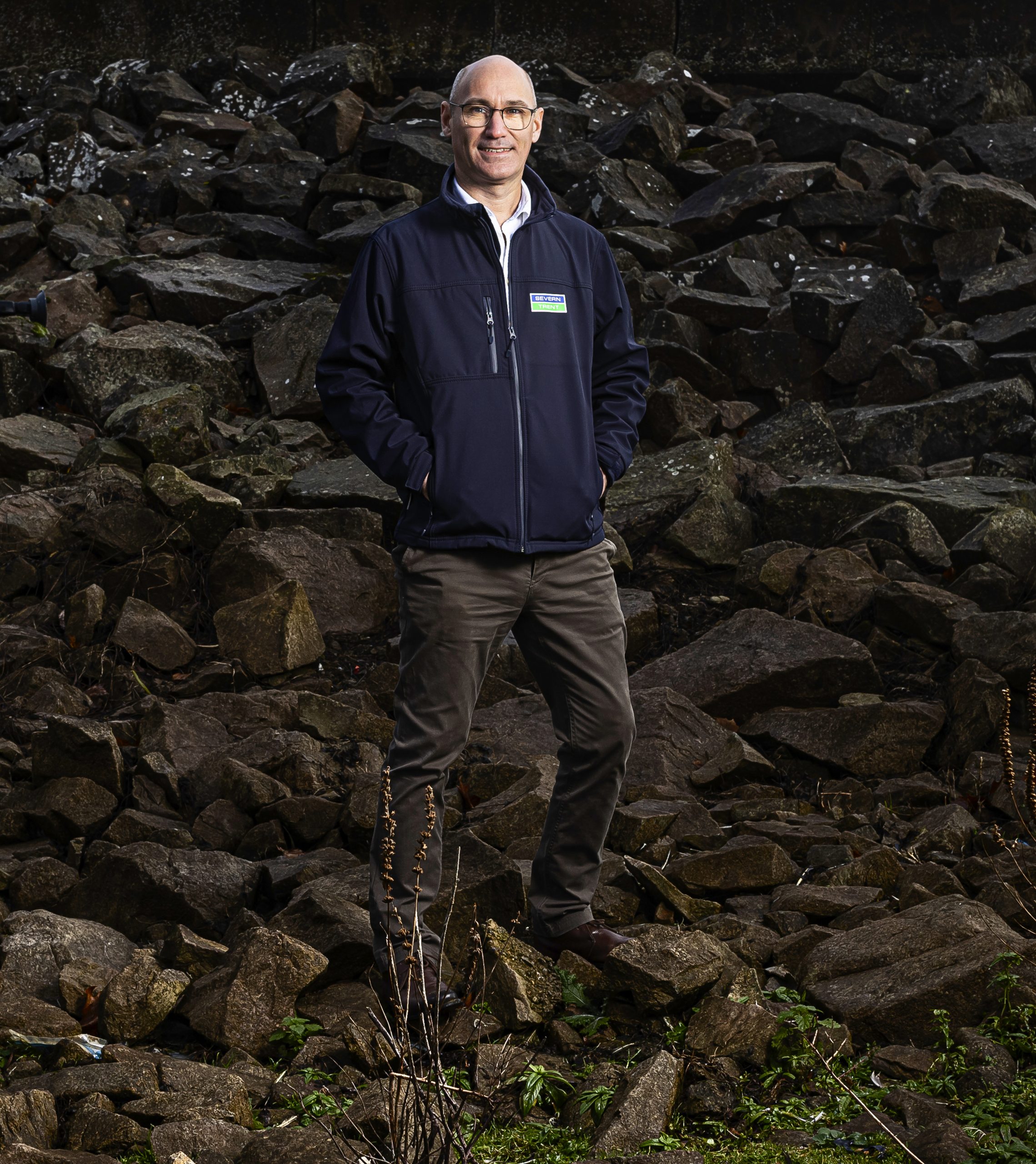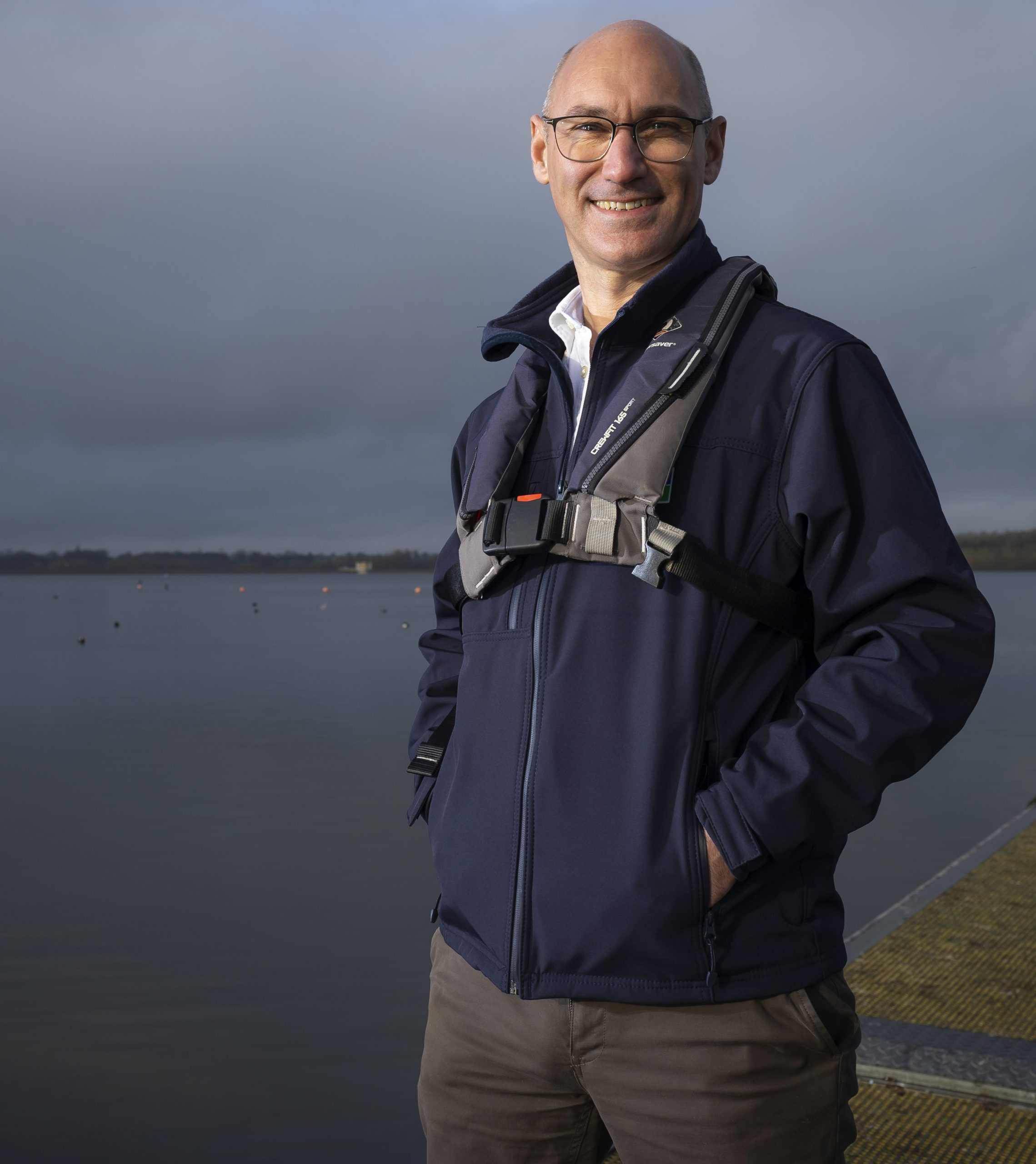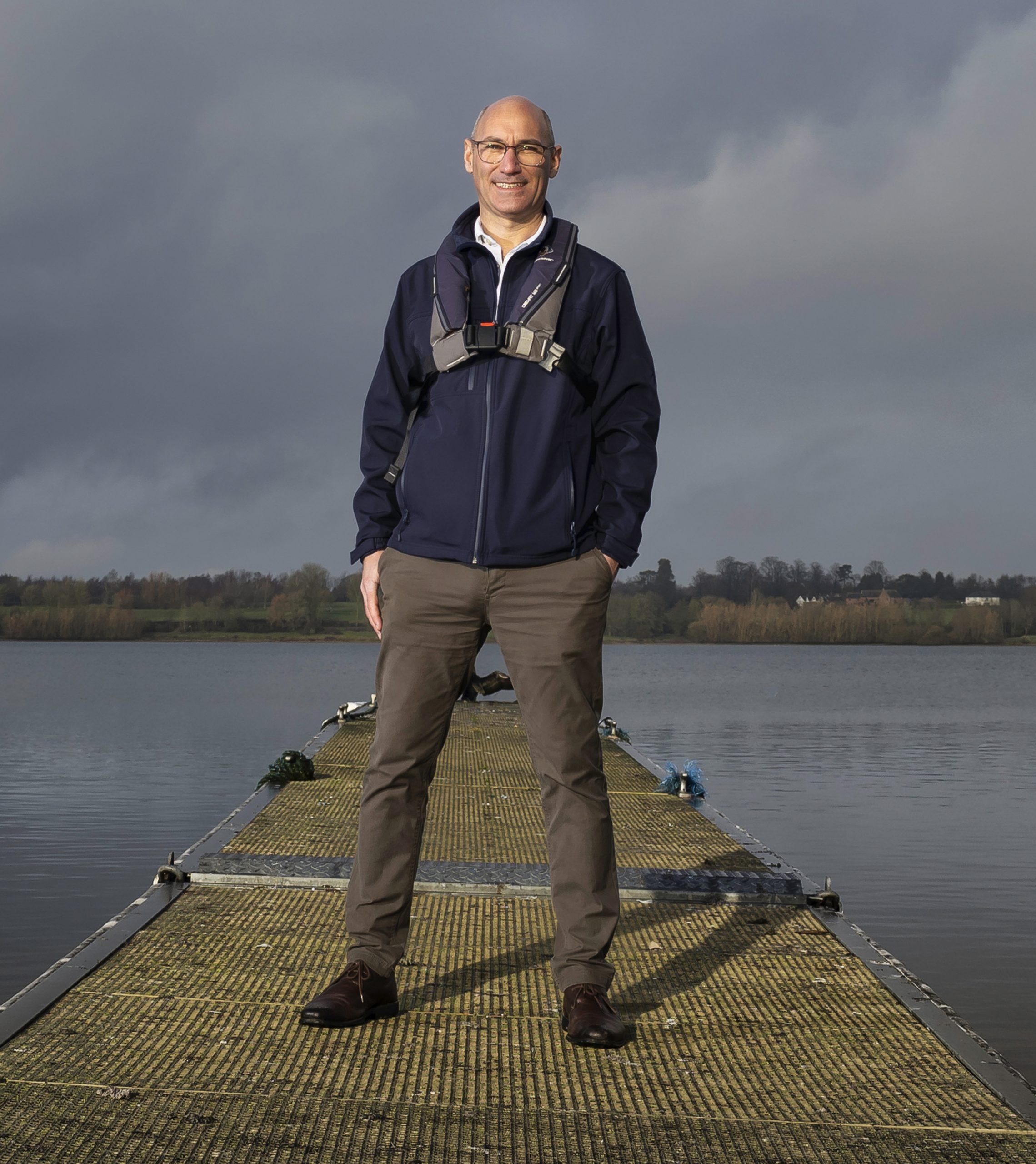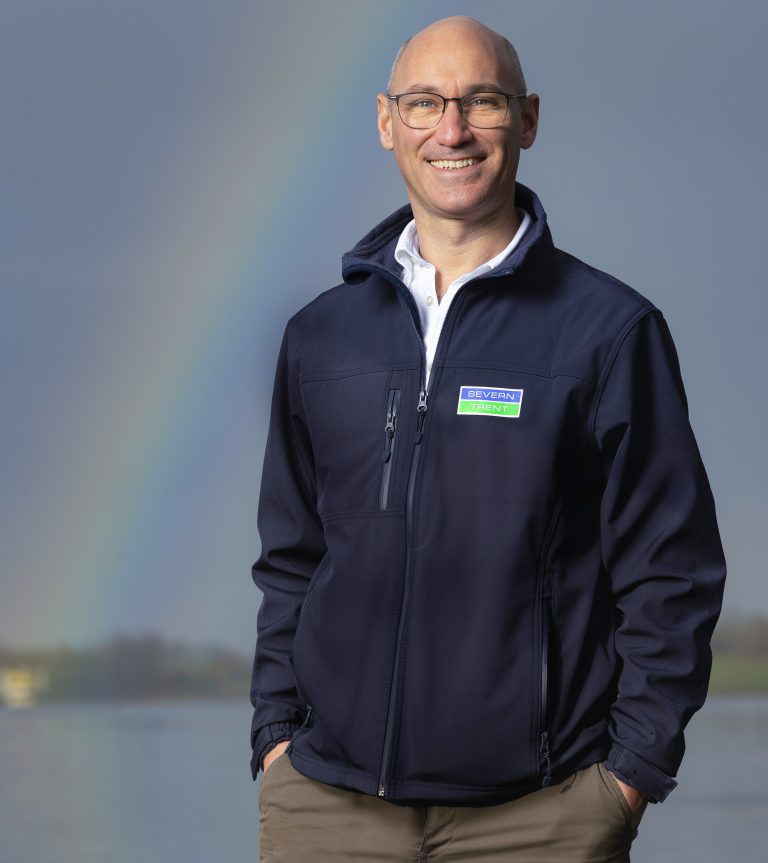Neil, tell us about your early life and how you found the path to a career in HR.
To be honest, I didn’t do what I expected in my A-levels, but I was offered a place at Sunderland University, although I didn’t think I would take it. Coming from the Isle of Wight, to me, Portsmouth was quite a trek, so this seemed like a polar expedition! As a southern softy, it was quite an eye-opener, but three years shot by. I returned home with a degree in psychology and, whilst the subject fascinated me, the idea of studying for another five years towards a PhD seemed a step too far. I really needed to make a start in work, gain some practical hands-on experience and earn some money. Back then, when you said to people that you had a psychology degree, most thought you’d analyse them, while others said, “so what are you going to do with that”? But somebody usefully suggested something called “Personnel” and so I researched and it just so happened that psychology was a useful route in. I remember applying for hundreds of jobs and eventually had an interview in Dartford. I was quite relaxed in the interview, because I didn’t think I stood a chance. I left and was halfway across the carpark when my interviewer, the HR Director, Colin Moore, came running after me and said: “If we offer you the job, are you going to accept it?” “Yes, of course!” I retorted in shock and that was how I joined the world of HR, at Dartford and Gravesham NHS Trust. It was to be the first privately financed, new build hospital in the UK and I was immediately swamped by some very heavy HR that I had zero experience in; TUPE work, consultation with trade unions, rewriting contracts… how I survived is a mystery! Although it sounds like I was out of my depth, in many ways, the NHS proved to be a safe place to start, because there’s lots of structure. Also, you’re surrounded by medical colleagues who, although stressed and overworked, showed impossible compassion and commitment day in and day out and that has stayed with me as hugely inspirational.

What happened next in your story?
I became gamekeeper turned poacher, as it were, with an outsource service provision company, that was a part of Rentokil Initial. The CEO was Clive Thompson at the time, “Mr 20 Percent”, an incredibly driven organisation and a darling of the FTSE 100. It was a very commercial environment and the culture was to drive performance hard. We had contracts with massive businesses and I was traveling up and down the country, carrying out the HR sweepings after the deals were signed. This was before the national minimum wage and you could see how very low-paid, often marginalised employees were really struggling; cleaners, security guards and post room employees… it really brought to light for me the plight of the many inequalities in workplaces. To me, it just wasn’t right in the modern world. But outsourcing was driven by margins and cost, profits and the bottom line were the gods.

It really typifies the word “resource”, but it seems that the human element was notably absent.
We were constantly shaving margins, pushing down hourly rates, it wasn’t anything I feel proud of, but it was important learning experiences, having previously worked in the public sector. Even today, we may have the National Minimum and Living Wage, but we still have the same challenge with inequality, with parts of society carrying out jobs that many of us would turn our noses up at. For many it’s not a career of choice, or some liberal elite concept around purpose, it’s because the need to put food on the table, that is the stark reality. This pandemic, however cruel and devastating, has shone more light into these inequalities. You know, COVID-19 has demonstrated that we can do without some professionals in their posts for a year, but the people at the other end of the scale are proving to be indispensable in this crisis… I really hope we learn from this time.

What happened next?
For the first time in my life, I was approached about a job. It was for a field HR role at Argos. It was just as Argos was rebranding and starting to look to grow, Terry Duddy was CEO and had transformed the business. They’d gone from looking like a bookies to become family friendly, with bright colours and light stores and they wanted to hire people from different sectors, to bring in different experience sets, ideas and knowledge. After some reluctance, once in the fold, I realised this was a fantastic new reboot, bursting with enthusiasm and it absorbed nine years of my life, in which I covered many HR-related roles. The biggest insight for me was that the CEO had set it up as a real meritocracy and it was massively sensitive to customer and employee feedback and quick to put things right. We were at the cutting edge of technology in retail. When I joined, it was Ring and Reserve, then Text and Take Home, then Click and Collect, then fully integrated internet retail – clicks and mortar. There were so many super talented people working there at the time and it was a wonderful place to learn from the best. This was a fascinating time, rapid growth, full of energy and a hectic HR schedule, I was really developing as a practitioner in this part of my career. It was 2008 and I felt it was really time to move on… I realised, understandably, I wasn’t going to be the next HR Director there, any time soon.
![]()
Tell us about your next move?
It was another call that caught my interest and, this time, it was the publisher, Random House. I had only heard the name mentioned in a US Rom-com starring Cameron Diaz. I carried out some research and discovered that this was a massive publishing giant and suddenly, I was ridiculously excited – not that I might meet Cameron Diaz – but because this was a business that was just about to go through a massive change to digitalisation. At the time, this was pre- Kindle, pre-iPad and just before the launch of the iPhone. I thought, “well, this is going to be fascinating!” The future of this massive and traditional industry was in the balance, this was a world that I had never experienced before and I met people who behaved in a way that I’d never seen before. It was wildly dynamic and just a bit mad, but I was working with people who were so incredibly passionate and knowledgeable. The CEO at the time was Baroness Rebuck, who was a legend within the industry. It was just brilliant… and nuts. I can’t describe it any other way. For example, publishing a global sensation such as Fifty Shades of Grey and the whole rise of digital technology, social media channels, the quest for content and trying to understand how territorial rights worked on the internet, were just some of the new challenges, as books were being opened up, to coin a phrase, to potentially a vast audience. We needed to recruit for a whole new set of skills and Random House wasn’t then first on the tech talent radar, so it was a steep learning curve. We were running at 100 mph, working across international territories as well as the UK. Different territories were at different stages of change and it was my first real international experience. Then in the summer of 2012, during the London Olympics, I was made aware that there were early, tentative conversations about a potential merger. What happened next was the biggest merger in publishing history, Penguin and Random House, two legendary brands. I had never experienced anything like it, bringing these two businesses together, forging a new leadership team, building a relationship with a new CEO, Tom Weldon, CEO of Penguin. Whilst it wasn’t the Montagues and Capulets, there was an understandable tension early on. It fascinated me that, even though both companies were steeped in the same history, the cultures were really quite different. The other really important element to the merger was, it wasn’t purely based on financial assessments of assets, it was properly based on what makes businesses great, people.
Fascinating, what happened next, Neil?
Once the dust settled, there was a real sense of excitement for the future. We were determined not to make a big Penguin or a huge Random House, we were creating something different and new. Whatever we did, we looked for the best, not the easiest outcome and we were always looking to strike the right balance. But there came a moment when frankly I was worn out, we’d delivered so much, but it was time for something new, something to refocus my energy. It was then that I was approached, by Severn Trent, a somewhat different world, which seems to be the story of my career and that felt exciting and challenging. I met with Liv Garfield, my current CEO and she is the most inspiring, enthusiastic, full-of-energy individual that you can come across and it was this sense of energy about wanting to do better and be better that really excited me. But what also attracted me to Severn Trent is that we are a community employer, a regional business that was providing jobs for 7,000 people in the West Midlands, East Midlands and areas that have social and economic challenges. After the meeting with Liv, I seemed to be interviewed by all the other 6999 employees – it was definitely the most comprehensive hiring processes I’d experienced – but the passion and pride for the work and the purpose came across in every conversation and meeting I had.
Explain a bit about the world of water and what the challenges facing the sector are?
That is a really key question. Until I had the call about the job at Severn Trent, I was like everyone else, turn the tap and out pours this fundamental element of life, I had never contemplated the water industry, let alone considered a job within it. The big picture was that at the time of me joining, the Labour Party came out with a manifesto commitment to re-nationalisine the industry. That had quite a substantial impact on people within the sector and started a debate about ownership models and the historical performance of the industry, which obviously created uncertainty. Ultimately, there’s only so much you can do to influence the politics and so my focus was on quickly gaining an understanding of the industry, the company and its people. A lot of our people don’t come into the organisation from academic backgrounds, there has been a strong heritage of apprenticeships and on-the-job learning is very important. With the industry changing, jobs were also changing, so a key part of my planning was a reassessment of re-skilling and upskilling, building more agility so that people could be redeployed with the right skills, inevitably there will be increasing automation in certain parts of the industry and so how that will impact people and their roles, not just today but in ten and even twenty years’ time has to be considered and planned for. It’s a case of, how do you make sure that employees are skilled and ready for change?
It seems strange to say that we hardly give a thought about water, the fundamental element of life.
Agreed, water and wastewater treatment are taken for granted and I’m not sure we have a strong enough societal debate about water scarcity and the environmental issues that we manage and deal with as a matter of course. But our colleagues are all hugely passionate about that and also, it’s a pretty amazing and noble achievement to supply a city the size of Birmingham with pure clean water and safely treat their waste. So, a big part of our work is radiating and promoting those messages, like every organisation, we’re vying for talent and our culture is one of the things that absolutely sets us apart. But no employer should be deluded that they can take their culture and engagement as read, it has to be worked at.
There is a massive change going on in what a career represents, how people think about ambition, do you think you’re set up to accommodate these new dynamics?
We are a definite mix of people in terms of what matters to colleagues and while there’s no doubt that we need to be mindful of the increasing speed and agility of the workforce, we mustn’t overlook our loyal, long serving, hard-working colleagues too. The bottom line is, look after your workforce, support them, keep them safe and if you do those things well, that’s the heart of being a good employer. Sometimes in HR, we forget that. There’s no doubt in my mind that this pandemic has raised the importance of looking after people – it’s not just empathy – it’s about doing what is right for the long term. For example, we’re investing £10 million in a state-of-the-art training academy and people will want to access that for a number of reasons; to keep up to speed with new technology or operational procedure, keep skills up to scratch, or to enable them to move up to or across to other positions. This new facility typifies our culture, that we would rather support and train people into a new role, rather than delivering the message that they are to be made redundant.
Increasingly, the messages have to be clear and what is said must be done whether the news is good or bad.
Agreed, we’ve seen in 2020 how when the messaging is clear, it gains buy in, but that can quickly change. Part of my remit is communications, media, marketing and internal and external comms and communication. This is essential to explaining the “why” and so your ability to connect with colleagues is key. We manage a natural resource, we take care of one of life’s essentials… it is, effectively, our purpose. Helping people to draw connectivity between what they do and the impact on the environment, our communities and customers is really important. Whether you are providing clean drinking water to communities or treating wastewater, that connectivity between the organisation, our people and our millions of customers is fundamental. It’s a living partnership that is paramount to our capacity to deliver and, while maybe we haven’t always celebrated that externally to any great degree, I think we should.
It wasn’t long ago that people threw disposable nappies down the toilet. There is a much better understanding or our individual impacts on the environment.
Yes, there is a much more positive outlook, but we still have a long way to go. In terms of our own operation, we’re committed to the triple carbon pledge by 2030, with a target to be zero-net carbon, all-electric fleet and fully-renewable, in terms of energy. That requires people to do things in a massively different way. Of course, playing a big role in the environment is high profile for us and it’s interesting because it also has a positive effect on our capacity to attract diversity of talent. When we see engineering graduates join, compared to other organisations, we see a very strong female representation and, anecdotally, it’s that connectivity with the environment that is appealing. But it isn’t just engineers, having a strong and clear social purpose is important for lots of people and positivity attracts talent into every single area of the organisation.
Tell us about your experiences and the challenges you faced as an organisation during the pandemic.
We’ve kept on operating throughout, as we’re a critical national infrastructure and an essential public service. One of the things that has been really important to us was that we kept going as normally as possible during this period, because 60 percent of our employees are key workers. Many are out in the streets fixing leaks, treating water, treating waste, or they’re in contact centers speaking to customers who needa massive lesson on how to carry on in the face of adversity and keep on delivering. I think it has given us all a real sense of the imperative of our services and at a level of societal value, that perhaps haven’t been placed on utility workers in the past, which I think is deeply unfair. Our thoughts are always with our communities and how we can support them. assistance. In so many ways, this has been
Indeed, the crisis has hit everyone in different ways, from the many tragedies of loss of life, the ruined businesses and redundancies, the isolation of the old and disruption to the young, in terms of education.
The communities that have been hit are also our customers and we’re really thinking about how we can support and help. A case in point, we’re taking on 500 Kickstarters as part of the Government scheme, because we’re very aware of the impact of youth unemployment in our region. We’ve also increased the number of apprentices that we’re taking on this year and really trying to provide opportunities in as many ways as we can. We’ve committed not to make redundancies as a result of the pandemic and we’ve given a three-year pay deal, to make sure that people know that their pay is going to increase – and by what amount. We’ve invested £2 million back into charities within the region, because I think now, more than ever, it’s time for British business to step up to the plate and play a role in building a return back to normal. When we open our academy at the beginning of next year, we’ll be planning in community training programmes and the way in which we can train people who aren’t working for us in skills, such as plumbing, so that they can go on and create jobs and employment for others. We’ve also reduced our payment terms to SMEs, so that we’ve been able to keep the supply chain liquid during this period of time. All of these actions are aimed at utilising our capacity to be a force for positive change and improvement. The pandemic has delivered some stark lessons and we’ve all gone through it in our own very individual ways but it’s clearly demonstrated that vulnerable people and those on the margins have been hit the hardest and it has raised how reliant we are on key workers. I hope our collective experiences will inform us to forge a better future.












